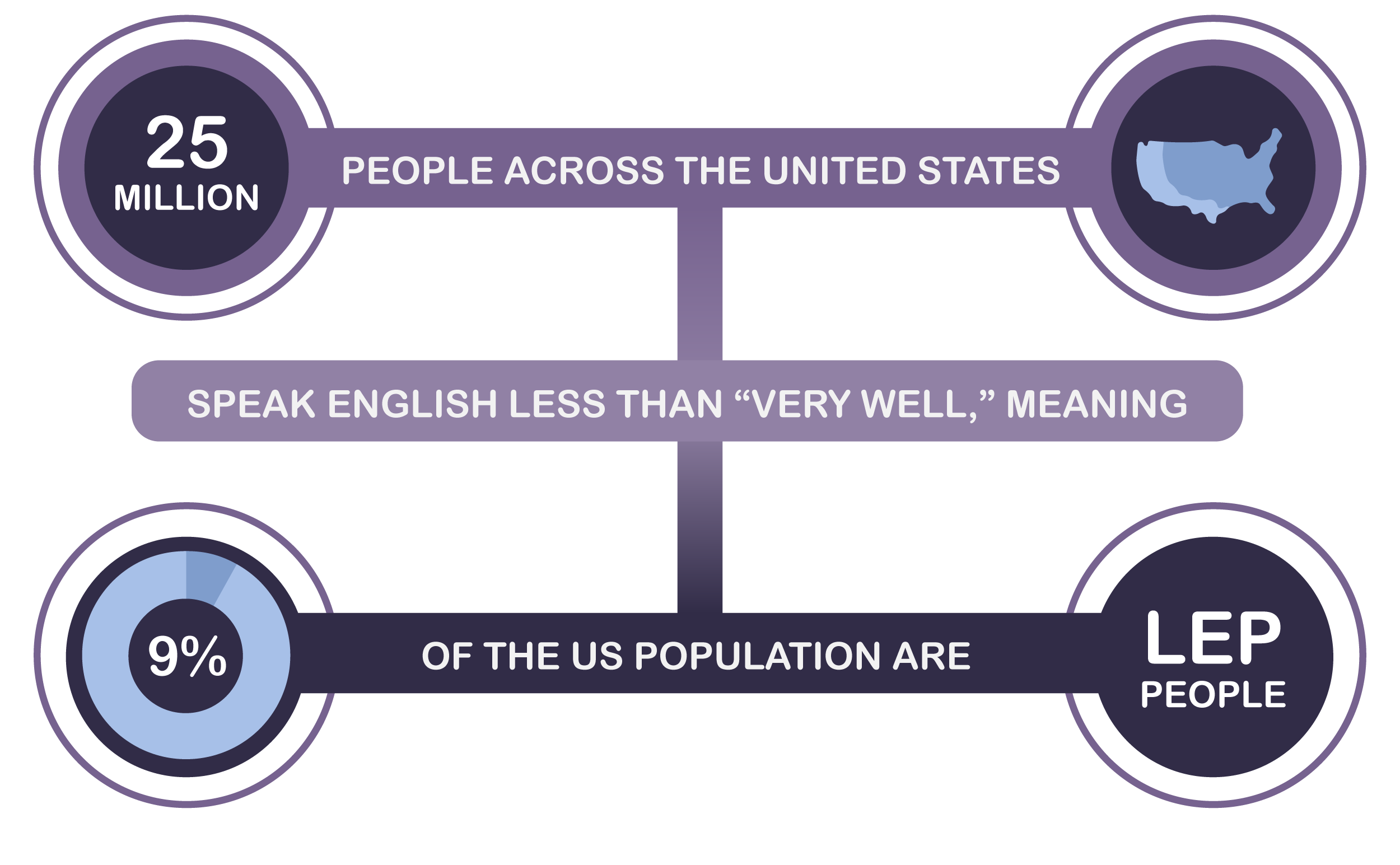Businesses often hire bilingual employees to provide customer service in multiple languages. However, you may see less value from this investment compared to using remote interpretation services. Let’s review the pros and cons of hiring bilingual employees vs. partnering with a qualified language services provider.
Hiring bilingual employees for your business operations
Your employees understand company policies and strategies for providing excellent customer service, delivering support, and helping you retain business. This strategy works well for communicating and problem-solving with customers who speak English, but how do you handle calls from customers who speak other languages?
Check out this data from CyraCom’s “How to communicate with your LEP customers to provide excellent customer service” resource:
- More than 25 million people across the US speak English less than “very well,” meaning LEP people make up 9% of the US population.
- Around 71.5% of customer service leaders claim a boost in customer satisfaction scores (CSAT) when they connect in the customer’s native language. However, only 19% of the surveyed customer contact centers offer support in multiple languages.
- In addition, a survey by Intercom resulted in the following data:
 29% of businesses say they’ve lost customers because they don’t offer multilingual support
29% of businesses say they’ve lost customers because they don’t offer multilingual support- 70% of end-users say they feel more loyal to companies that provide support in their native language
- 62% of customers are more likely to tolerate problems with a product if they can interact with support in their native language
According to survey results from Intercom, 85% of support managers say it’s challenging to find reps who speak more than one language.
Using remote interpretation for your business operations
Your employees understand company policies and strategies for providing excellent customer service, delivering support, and helping you retain business. This strategy works well for communicating and problem-solving with customers who speak English, but how do you handle calls from customers who speak other languages?
Interpretation services help you improve customer satisfaction (CSAT), first-call resolution (FCR), average handling time (AHT), and overall quality:
- ICMI partnered with us (under our subsidiary Voiance) to determine that after introducing a language interpretation service, FCR, AHT, and overall quality were positively affected by 36%, 20%, and 32%, respectively.
- 5% of customer service leaders claim that support in a native language increases satisfaction.
 Choosing remote interpretation over hiring bilingual employees also helps you reduce fixed costs. With CyraCom, you’re only charged for the minutes you use, and all spoken languages are available at the same price for over-the-phone interpretation, video interpretation, and teleconferencing. You’ll save time, energy, and the cost of hiring bilingual employees while increasing multilingual customer support.
Choosing remote interpretation over hiring bilingual employees also helps you reduce fixed costs. With CyraCom, you’re only charged for the minutes you use, and all spoken languages are available at the same price for over-the-phone interpretation, video interpretation, and teleconferencing. You’ll save time, energy, and the cost of hiring bilingual employees while increasing multilingual customer support.






 Ready to incorporate language services into your business?
Ready to incorporate language services into your business?





